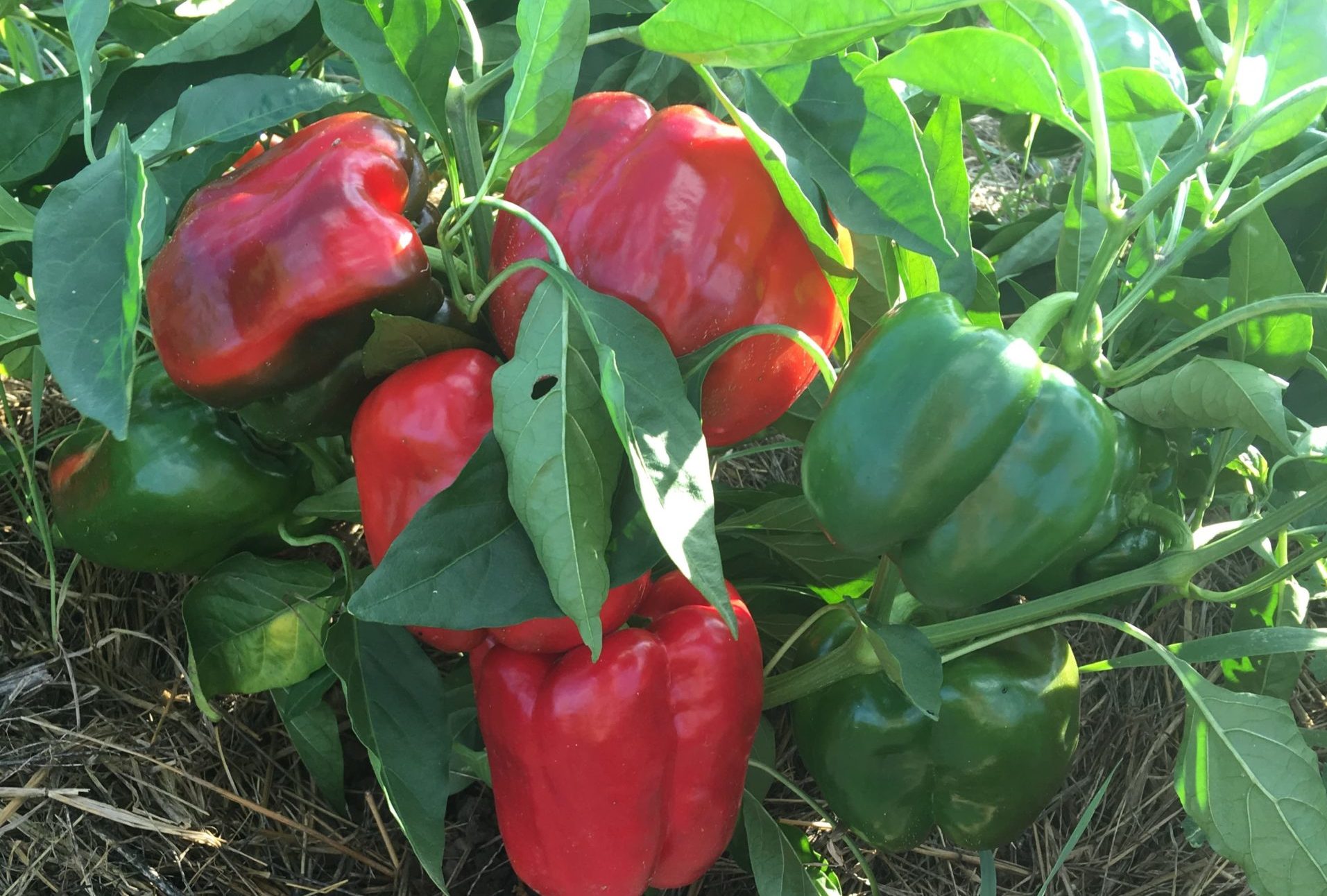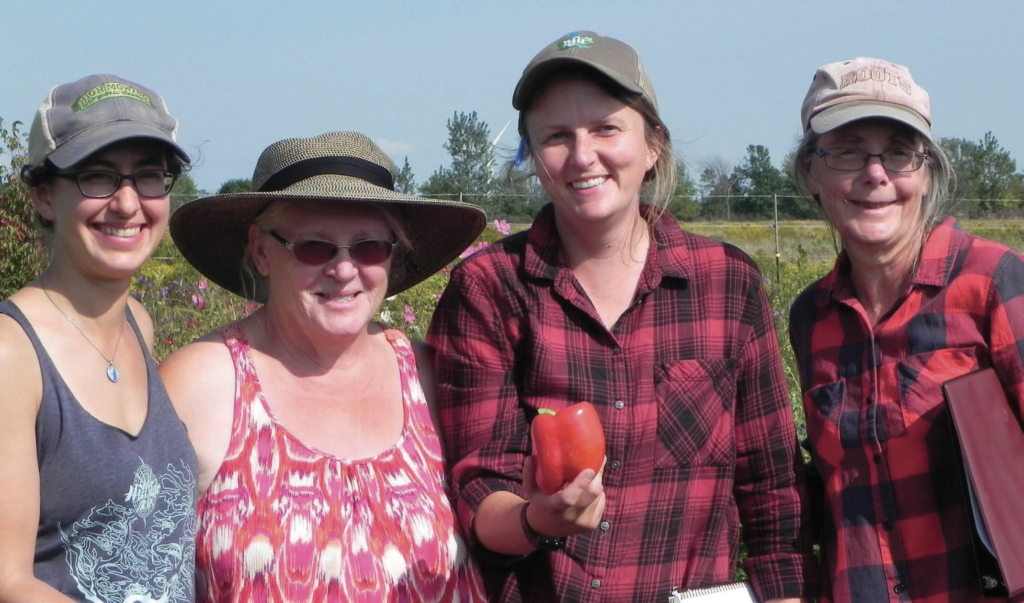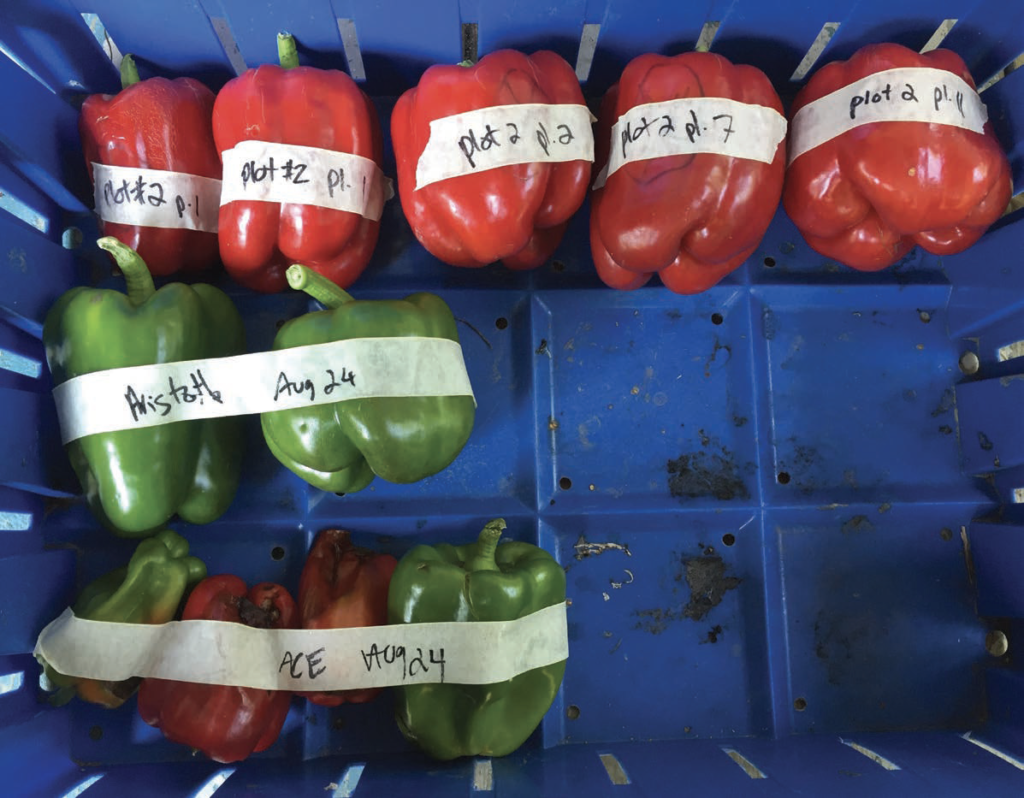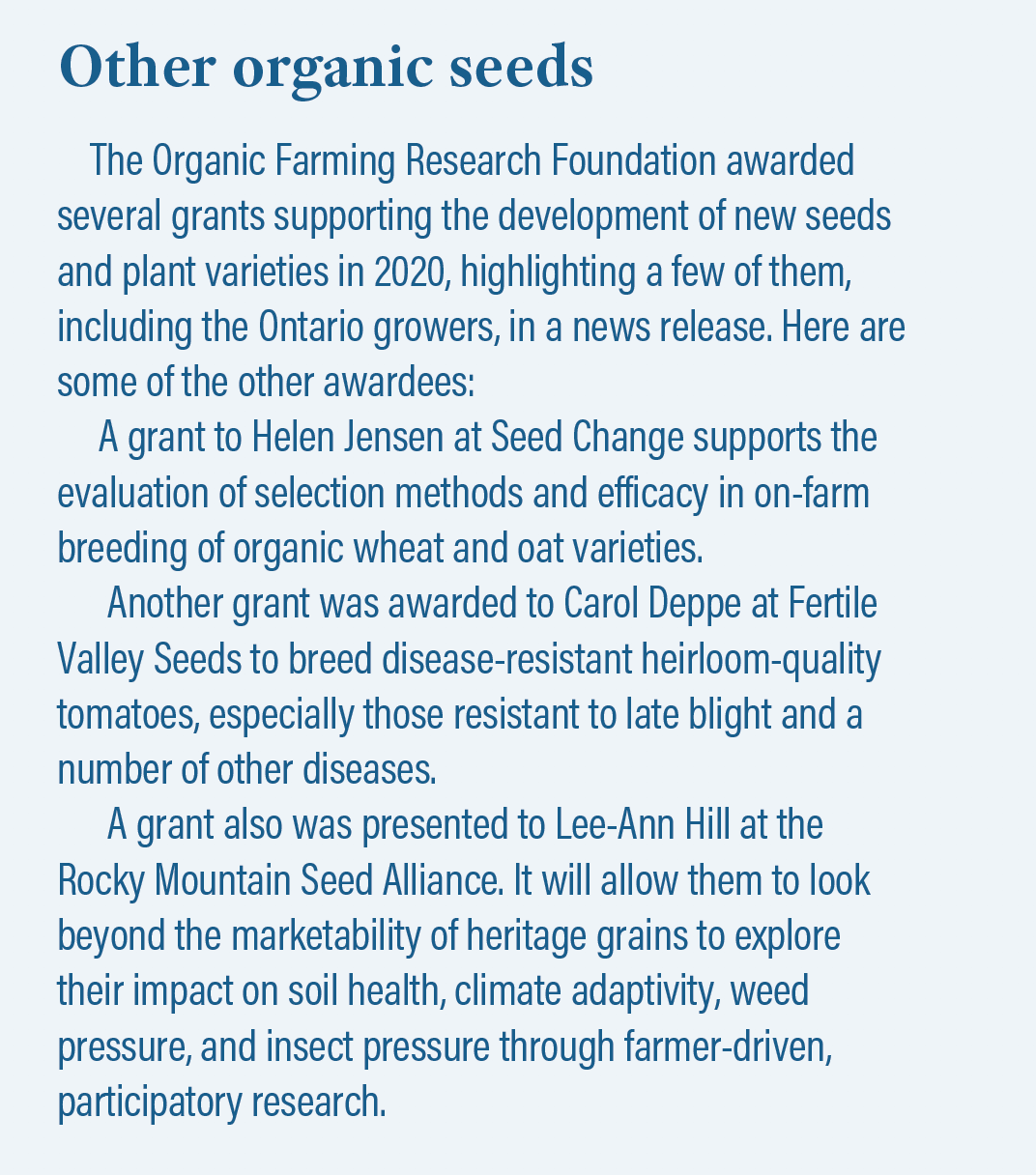
Feb 17, 2021
Ontario growers release new organic seed, Renegade pepper
For five years, a group of five organic and ecological growers in southern Ontario collaborated on a new variety of bell pepper.
The flavor had to be right, but equally important was a blocky shape with thick flesh, and the growers knew that from talking to the consumers themselves at their farm markets. Finally, but perhaps most importantly, the pepper plants needed to be strong enough to thrive without synthetic chemicals to defend them against disease, pests and weeds.
That lengthy effort recently yielded some fruit, or rather peppers, as the group released seeds for Renegade, an early-yielding variety pepper variety that’s dialed in for their specific climate and market conditions. In cooperation with the Ecological Farmers Association of Ontario’s (EFAO) Farmer-Led Research Program, they received a grant from the Organic Farming Research Foundation (OFRF) not only to release Renegade and continue to breed for stability, and the grant also supports other growers in the beginning stages of new seed development projects in cucumbers and broccoli.
Releasing a new variety – naming it, seeing it pop up in seed catalogs is exciting, but developing Renegade was a long haul of hard work, and that’s often the reality of organic seed development.
“We’re really grateful to OFRF for supporting those beginning stages,” said EFAO research director Sarah Hargreaves. “Breeding takes a long time, so it was so great to have that support across projects of different stages.”
People

Growers’ hunger for organic seed is palpable. When OFRF conducted a national survey of organic producers in the U.S. for a 2016 report, 20% of respondents said organic seed was rarely or never available, and 30% said organic seed was only available some of the time.
While OFRF’s survey found there was some regional variability in how accessible organic seed was – western growers reported having better access to seed.
Growers in Ontario still have some organic seed needs. The EFAO serves roughly 700 growers in the province and “all of our members are limiting, if not totally restricting, the use of synthetic fertilizers and herbicides and pesticides,” Hargreaves said. The organization focuses on farmer-to-farmer training and peer research in a setup modeled after Practical Farmers of Iowa.
A breeding needs assessment study through the Northern Organic Vegetable Improvement Collaborative, as well as the Canadian Organic and Ecological Plant Breeding Priorities For Vegetable Crops report from the Bauta Family Initiative on Canadian Seed Security, laid the groundwork for future breeding projects.
“Some of these were projects that farmers were already working on,” said EFAO Seed Program Manager Rebecca Ivanoff. “The farmers are looking at what they need on their farms.”
Process

The ultimate goal for the growers is to release a mass-selected population of red peppers, and uniform populations of red and yellow peppers using progeny lines, according to OFRF. Other growers in cooperation with EFAO also hope to release an open-pollinated broccoli variety that is heat tolerant and adapted to organic systems, as well as an open-pollinated seedless English cucumber with excellent flavor and good yield that is adapted to organic greenhouse conditions.
The projects are at very different stages.
“So, for the cucumbers, for example, we have a grower who’s looking for seedless cucumbers in his greenhouse,” Ivanoff said. “He has a variety he’s been taking seeds from for a long time; he wants to improve the variety that has seeds and make it seedless. So he’s learning about the process for that. It’s complicated. The first thing he needs to do is create an F1 (Filial 1) cross of the two varieties he’s selected to cross, so he’s just at that very beginning stage, while the pepper breeding stage has been going on for about five years, supported by the research arm of the farm-related research program here at EFAO, pretty much from the beginning of the EFAO’s Farmer-Led Research Program.”
Ivanoff, Greta Kryger, Annie Richard, Kathy Rothermel and Kim Delaney are credited with breeding the Renegade pepper. As part of the program, growers receive some basic stipends for research expenses such as reusable equipment, winter greenhouse space and so on, though not much income.
“For the most part, stipends like this don’t pay for the farmer’s time, but it’s a token of recognition of the time and energy and land that this type of work takes,” Ivanoff said.
For the non-hybrid plants, organic seed developers walk a line, balancing uniformity of desired traits with the genetic variability, which Ivanoff said some growers prefer. The seeds generated from these projects are all open-pollinated and their genetics won’t be considered proprietary, Hargreaves said. But that doesn’t make the peppers any less desirable to the growers, or the consumers.
Product

Certified organic seed Renegade pepper is now available through Kitchen Table Greta’s Organic Gardens, the seed shop of Kryger’s, and Kitchen Table Seed House, the seed company of Richard and Rothermel.
“These peppers are among the earliest bells to ripen on the market,” according to Kryger’s website. “Renegade Red is genetically diverse and not completely uniform and so retains the potential to further adapt to your garden or farm if you wish to save the seeds.
Ivanoff said the taste of the pepper was honed over the years by holding taste-testing panels at farm markets in Ontario.
“The farmers worked hard on taste,” she said.
Five years later, the growers have in hand the seeds they set out to develop.
“When the EFAO members were going to market, those customers were wanting those early, blocky, thick-fleshed peppers, and so they worked hard to find one that’s adapted to low-input organic systems for southern Ontario,” Hargreaves said.







